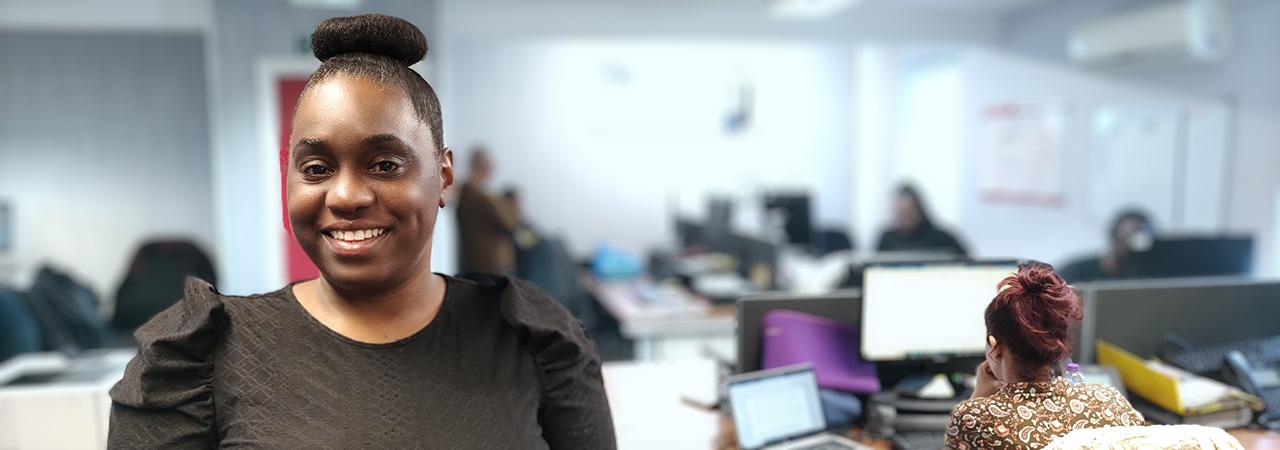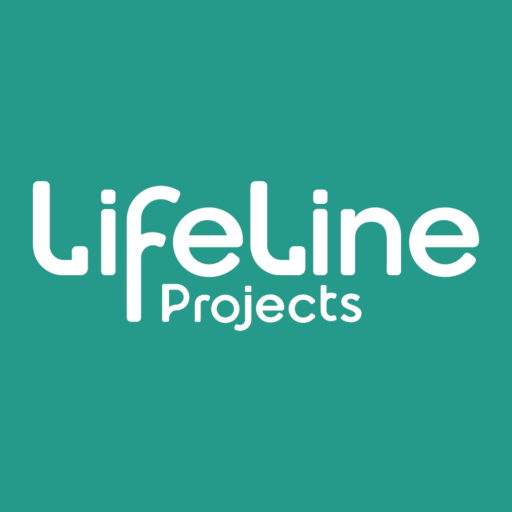This month, we’re delighted to speak with Tilishia, who joined us in May to manage our newly-formed Families team. You can read more about what the team have been up to recently and we hope you enjoy learning more about Tilishia below.
Where did you grow up?


Hackney. Been there all my life; my grandparents lived in Islington, mostly all in north London.
Did you come from a big family?


Very big! My mum is the youngest, my dad the eldest of three. One of my uncles has eleven children. I’m the eldest of three.
Most of us live in Hackney, but some moved further out.
We’re all really close—we meet up for birthdays, anniversaries. We still celebrate birthdays of our lost relatives. And lots of BBQs, lots of big proper parties. My dad’s mum used to have these huge new year’s parties.
Myself, I have a son and a daughter, and my partner’s son.
What did your family teach you?


Oh, they taught me a lot. That we stick together and support each other through every situation—a real sense of togetherness. Even as adults, we’re there to support those younger. Working at LifeLine reminds me of my upbringing.
Did you go to university?


Yes, London Metropolitan. I studied Community Sector Management. It was about understanding communities, demographics, and how to support communities.
During my degree, I was working as an Admin in a childrens centre. After university, they had a position for a Community Development Manager. That was my lucky break.
What was your first job?


My first ever job was when I was 16. I worked in a hairdressers.
Before that, at 15, I would have people come round the house and I would do their hair there. I suppose I was enterprising. I get called a doer, a go-getter.
As an adult, I used to organise my own after-school club. We used to focus on cooking meals from scratch.
How did you hear about LifeLine?


I got a call from a recruiter actually. They had seen my CV online, and I got set up for an interview.
I’d looked up LifeLine online and everything they did looked great and interesting.
What skills do you need as Head of Families?


I would say you have to be well-organised, open to engaging with people, be able to switch hats quickly, and always be respectful and supportive.
What led you to this job?


Lots of my life experiences. We tend to go for things where we’re comfortable.
In parts of my life, I’ve needed support and I had my family. The hardest experience was last year when my son’s father was murdered.
Not everyone is lucky to have that support. This is the perfect place for me to be; I can relate to a lot of parents out there.
What do you like most about your job?


Helping people that I can identify with. I understand their situation.
For example, with social housing; I was in a hostel as a teenager. I understand a lot of the system procedures. This job is all of the experiences I’ve been through.
How would you describe Lifeline?


It reminds me of a family hub, offering support for people of all ages.
What has been the happiest day of your life?


I’ve had many happy days, but becoming a mum was one of the happiest. And just watching my children achieve things, watching them develop into successful young people is a constant source of joy.
What one word would you use to describe yourself?


Understanding—when I was leaving my last job, a lot of my colleagues thanked me for the support I gave them.
What’s the one thing no one knows about you?


I’m a qualified nail technician. I used to work in a beauty salon. And I even did Kate Moss’ nails—she was really nice!
What gets you out of bed in the morning?


Knowing that I could make a difference for somebody, whether it’s my children, my parents, or the people we help at LifeLine.
I also have to get up to feed our two dogs.



